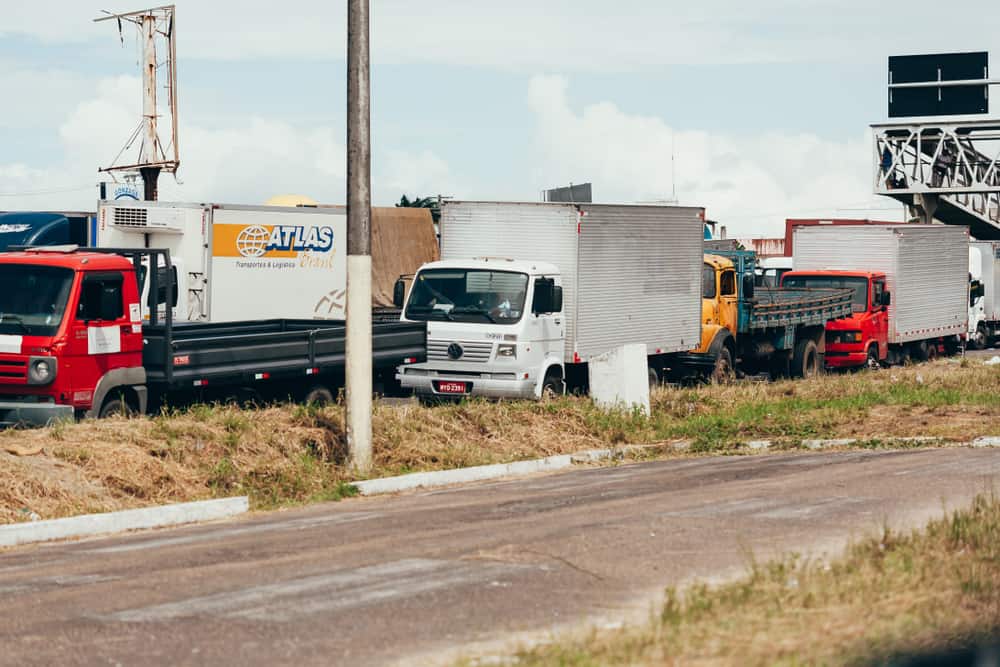
If you browse online forums for owner operators and independent truck drivers, you’ll see the idea of a nationwide work stoppage or strike bandied about as a scorched-earth solution for everything from shippers’ detention practices and low trucking rates to the ELD mandate itself. Despite rumors, threats, and a laundry list of grievances, a general strike has never materialized among American owner-ops.
Things are different in Brazil. That country is now 11 days into a nationwide strike by its self-employed drivers over out-of-control diesel fuel prices. The controversy over diesel prices has its roots in the 2016 political crisis that saw President Dilma Rousseff impeached and removed from office. President Rousseff went down over her involvement in a wide-ranging corruption scandal at Petrobras, the semi-public Brazilian state oil company. Rousseff was on the Petrobras board of directors when it came out that Petrobras executives colluded to overpay for construction and other services in return for bribes; in her capacity as President, Rousseff changed policy to allow for plea deals for the executives caught up in Operation Car Wash, the law enforcement initiative that uncovered the scheme.
President Michel Temer, Rousseff’s successor, has a different political philosophy and some of his policies have had controversial results. Rousseff and her immediate (and ideological) predecessor, Lula, were socialists—in fact, Rousseff was jailed in the 1970s for her participation in a leftist guerrilla organization—while Temer is a more conservative lawyer with a doctorate from the Pontifical Catholic University of São Paulo. Temer, for example, has amended the Brazilian constitution to cap public spending and supports lower taxes.
The roots of the truck driver protests lie in one of President Temer’s policies: he has altered how Petrobras prices petroleum and petroleum products to Brazilians. Previously, the Brazilian government subsidized Petrobras so that it could offer artificially low diesel and gasoline prices to Brazilians. Temer’s new policy means that the prices Petrobras offers will float with international oil benchmarks (like gasoline prices in the United States do). The chart below shows how quickly diesel prices have increased since 2016:

According to GlobalPetrolPrices.com, as of May 28, Brazil’s diesel price had risen to 14.34 Brazilian Real per gallon. The policy change caused an immediate increase in price, but the subsequent weakness of the Brazilian Real relative to the US Dollar, which is the benchmark currency for crude oil, has also made it more expensive for Brazilians to purchase fuel.
The truckers’ strike has been extremely disruptive. Truckers have used their vehicles to erect hundreds of roadblocks throughout the country, completely paralyzing Brazil’s highway system. The New York Times has reported that gas stations from the financial capital São Paulo all the way to villages in the heart of the Amazon rain forest are out of fuel. Airline flights are being canceled, supermarkets are running out of fresh food, and yesterday, many universities and schools canceled classes. The Guardian reported that due to a lack of feed, poultry farmers have had to slaughter millions of chickens prematurely.
Yesterday President Temer agreed to some preliminary concessions, saying that Petrobras would cut the price of diesel by the equivalent of 13 American cents per gallon (costing the government over $2B), but that offer has so far failed to dissolve the protests.
“Our fundamental and correct concern is with the truckers and I understand their difficulties. We all understand the natural difficulties of truckers in their work,” said President Temer.
The strike appears to have shifted from protests over government oil policy to more drastic demands to end government corruption. Oil workers announced this week they would join the protest, and some strikers are demanding a military intervention to remove President Temer from office.
José Lopes, leader of the Brazilian Truck Drivers’ Association, said Monday that the strike movement had been subverted from the inside. “There is a very strong group of interventionists,” he said at a press conference. “They are people who want to bring down the government.”
Stay up-to-date with the latest commentary and insights on FreightTech and the impact to the markets by subscribing.










